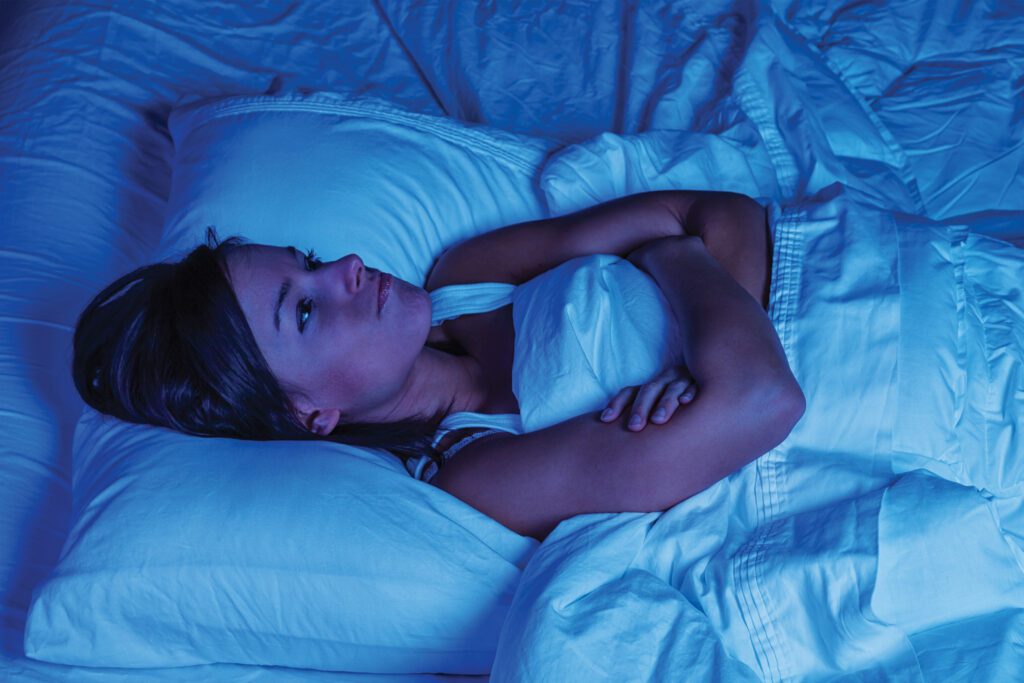According to the CDC, as many as 10% of Americans experience insomnia, or difficulty sleeping, nearly every night. This lack of much-needed slumber is no doubt frustrating, and its negative effects on your body and mind, from the dark circles to the impaired judgment, are serious. If you’ve tried counting sheep to no avail, one of the following all-natural sleep supplements may be for you.

Melatonin
Melatonin is a hormone that works to regulate your body’s sleep/wake cycle; melatonin levels rise in the early evening through the night, keeping you asleep, and fall in the morning as you prepare to wake. You might have heard of travelers taking melatonin to overcome jet lag, just as night-shift workers often use it to cope with their unusual schedules. But this over-the-counter supplement, available in liquid or pill form, is also an option for those with chronic sleep trouble, as it can help insomniacs fall asleep more quickly. It’s recommended that you talk with your doctor before taking melatonin – a low dosage (around a milligram or less) will likely be prescribed, and a more long-term treatment option discussed.
Valerian Root
One of the most popular herbal supplements, valerian root has been used for medicinal purposes since the time of the ancient Greeks and Romans. Research suggests that valerian increases chemical GABA (gamma-Aminobutyric acid) in the brain, producing a calming effect. Valerian root will prove most effective in improving sleep, with little to no side effects, after taken regularly for two or more weeks; it’s widely available in capsule form, and dried valerian root extract can be used to make a cup of tea. In addition to valerian, relaxing herbs such as chamomile and passionflower are recognized to promote a good night’s rest.
L-Theanine
Green tea has been touted as a “superfood” in recent years, largely due to its high antioxidant content. Yet green tea, as well as black tea, also contains the amino acid L-Theanine, which promotes relaxation and has a calming, anti-anxiety effect on the mind. L-Theanine does not act as a sedative, but instead increases GABA levels and dopamine in the brain – resulting in improved sleep quality. It is virtually free of any side effects, although drinking too much green tea can cause an upset stomach. L-Theanine can also be purchased in capsule form.
Vitamins & Minerals
B vitamins, vitamin D, calcium, magnesium – each is an essential vitamin or mineral that encourages better sleep. Magnesium plays a role in supporting restorative, deep sleep, and low magnesium levels are often associated with slumber struggles; insomnia is actually a common symptom of magnesium deficiency. You can easily incorporate more magnesium into your diet by adding leafy greens, nuts and seeds, and beans to your plate, or by purchasing magnesium supplements. Similarly, a vitamin D deficiency can affect both sleep quality and quantity; increase your intake through direct sun exposure, vitamin-D-rich foods like fatty fish and dairy products, and vitamin D supplements.
Of course, poor sleep could be indicative of poor lifestyle choices. While natural supplements have their place, you may find them unnecessary after making some simple adjustments to your routine:
- Exercise regularly, ideally working out in the morning to late afternoon.
- Avoid consuming large meals at least two hours before bedtime.
- Avoid caffeine four to six hours before bedtime.
- Reduce the use of light-emitting technology, such as your laptop or smartphone, before bed.
- Adjust your thermostat to a comfortable temperature (at or below 70˚F).
- Keep distracting noise and light at a minimum in your sleep space.

